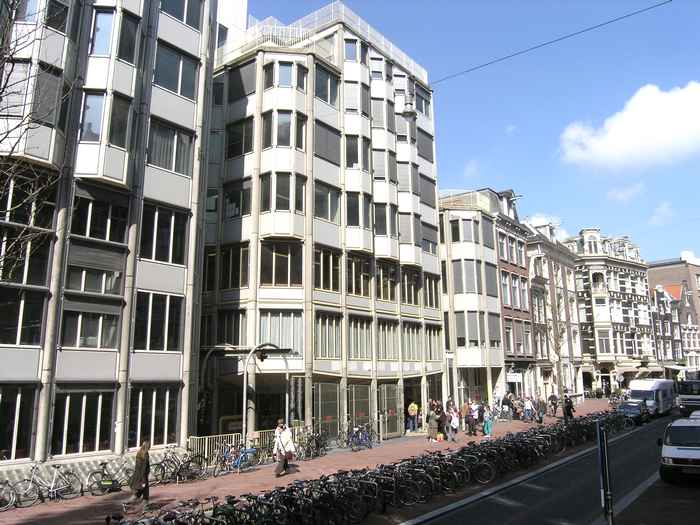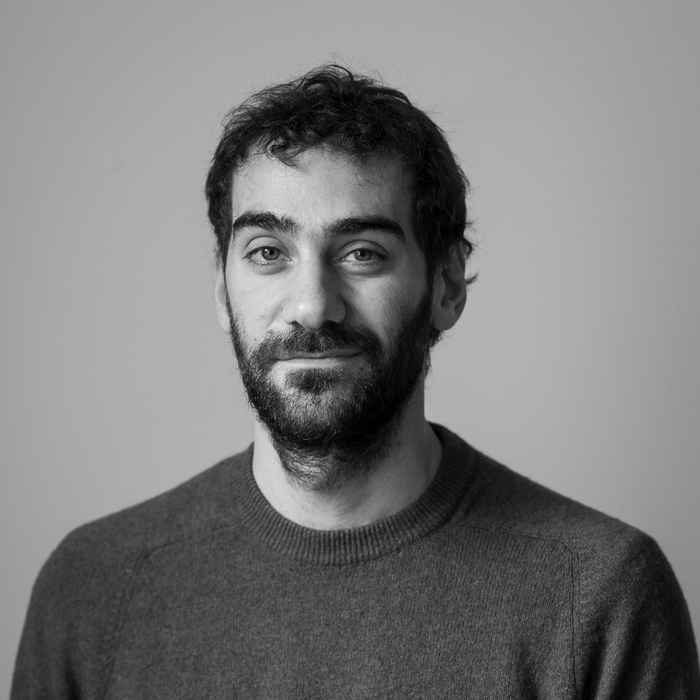'My fellowship at UvA was one of the most rewarding academic experiences I’ve had'
Dr. Dimitris Soudias on his Marilena Laskaridis visiting fellowship
Can you tell us a bit about the project you worked on as Laskaridis research fellow at the University of Amsterdam?
During my Marilena-Laskaridis Visiting Fellowship, I worked on two things. The first was to write up a research grant proposal on future-making practices in the social economies of Athens and Berlin, with a focus on entrepreneurial imaginaries of welfare provision. The second, which is quite related to the first, is about what I refer to as ‘alter-neoliberal critique.’ Here, I grapple with the fact that crisis after crisis, neoliberalism is declared ‘dead,’ but doesn’t really seem to go away. I build on pragmatic sociology to show that neoliberalism has incorporated critical activity into its mode of functioning and, subsequently, to shed light on how neoliberal rationalities have been successful in coopting certain forms of radical praxis (such as, for example, in the social and solidarity economy). So in a sense I start with the limit – with how critique in neoliberalism reproduces some of the things against which it is voiced – in order to then imagine emancipatory alternatives to neoliberalism. Here I draw from critical theory, governmentality studies, radical democratic as well as anti-authoritarian thought.
These research fellowships are for research projects (partly) situated in the field of Modern Greek Studies, broadly understood. How does your work relate to Modern Greek Studies and how do you see your relation to the field?
This is an interesting question, because I hadn’t really engaged with the field of Modern Greek Studies before the fellowship. I have a background in Middle East Studies, so I can relate to the interdisciplinarity of an area studies field such as Modern Greek Studies. And I think this is a partial answer to the question: through the field’s interdisciplinary take. My work is situated in the social sciences, broadly placed between cultural (political) economy and economic sociology. Modern Greek Studies to me can be the bridge through which the social sciences and humanities meet to offer critical and truly interdisciplinary perspectives on a phenomenon pertaining to the field. For example, while working together on a short essay with Maria Boletsi – my main contact person during the fellowship - I found her insights in cultural analysis and comparative literature vis-à-vis ‘misreading’, ‘defamiliarizing’, or ‘queer reading’ very inspiring to think about the relation between reading, method, and critique in my own work.
What did you enjoy most about the University of Amsterdam and Amsterdam as a city? What did you find estranging, funny, or less appealing about life in Amsterdam or at the UvA?
This may sound bland, but I really like P.C. Hoofthuis actually, where much of the Humanities at UvA are housed. I think parts of it has to do with the fact that it is openly accessible. In the United Kingdom, where I worked before, this was quite different, as universities are policed through ID checks and security personnel. And as we know the current Greek government decided to go even further by establishing a university police force—an outrageous and dangerous development, not least because of the country’s authoritarian past. So I appreciate the University of Amsterdam appears to take another direction. Indeed, my office there at the P.C. Hoofthuis was wonderful and I was very productive there. And I very much enjoyed the breaks at the Singel canal. As for Amsterdam itself, I had a great experience overall and I’m thankful I’ve had the opportunity to live there for a few months. Though regarding the speed of bicycles, as well as the city’s cuisine, my feelings remain mixed…

What is your impression of the academic community in Modern Greek Studies at the University of Amsterdam?
The academic community was fantastic. Without a doubt my fellowship at UvA was one of the most rewarding academic experiences I’ve had. Eva, Evgenios, Maria, Tatiana, and Vasilis were wonderful to work with, and to hang out with! I am very happy we’ve met and that we continue to collaborate on future projects.
What do you consider the highlight of your fellowship?
Honestly: the team. It’s hard to pick a single thing, because it was the everyday during my fellowship I enjoyed the most. But if I had to choose, I’d say the collegiality within the team, particularly when we co-organized the 2nd ‘Greek Studies Now’ conference. Organizing such a large event is quite demanding, so I am really impressed and thankful for how supportive we were to each other—this made the tasks at hand all the more rewarding and enjoyable.
What do you consider the main outcome of your term as a fellow at this university?
A lot of work in progress, but two actual, tangible outcomes. I have written and submitted my grant proposal, so fingers crossed! And I have also finalized the revisions for my book ‘Paradoxes of Emancipation: Radical Imagination in Neoliberal Greece’, which is under contract with Syracuse University Press.
What are your plans for the next few years? Do you feel the fellowship contributed to these plans?
It has, because first and foremost it allowed me to put my future project ideas on paper and submit them. But the fellowship also allowed me to learn a bit more about the higher education system in the Netherlands and there were quite a few projects – from grant ideas to concrete special issues proposals, that emanated in a relatively short period of time
Do you see yourself returning to Amsterdam in the future?
I’d love to, when the opportunity arises. At the very least for a visit to see everyone again!
Do you have any advice, thoughts or suggestions for prospective applicants for these fellowships?
I must reiterate that the team has been wonderful, so I think this alone makes the fellowship worth applying to. Other than that, I remember I was initially a bit reticent about applying at all, because I wasn’t sure my social science take on Greece would be relevant or interesting for the work of Modern Greek Studies at the University of Amsterdam. I was quite wrong, so I can only encourage interdisciplinary social science scholars with a proclivity to the humanities to apply.
